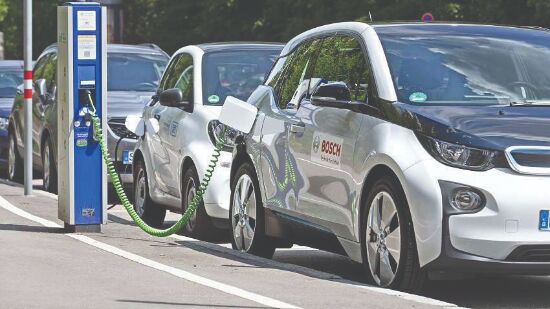'Govt's aim is to address climate change and health emergency with EV policy'

new delhi: The Delhi government participated at the UNFCC 'Race to Zero Dialogue: Launching the global race to zero-emission mobility' and presented its vision for a clean and green future of mobility, during which Delhi's Dialogue and Development Commission's Vice-Chairperson Jasmine Shah said the Delhi government's aim is for its transition to electric vehicles to address both climate change and the health emergency arising out of polluted air.
Shah represented the state Government on the platform and spoke about how the government drew up a comprehensive policy for zero-emission vehicles in the capital. He said that with the right political will, it is easier to make the
transition.
Shah said, "This kind of an aggressive roadmap was possible only because of political will that the Delhi government, under the leadership of Chief Minister Arvind Kejriwal, has displayed on the matter of air pollution."
The dialogue was organized by the Climate Group in collaboration with the UN High-Level Climate Champions and the UK COP26 Presidency and Shah represented the Delhi Government at the session — Government's leading the way.
The Vice-Chairperson said that the plan was to first target the fiscal incentives for specific vehicle segments that contribute maximum to vehicular pollution in Delhi's and India's context — two- and three-wheelers — along with introducing non-financial incentives to help overcome barriers that might hamper EV adoption. "For instance, we have allowed bike taxis to ply in Delhi only if they are EVs," he said.
The State government facilitated the setting up of charging infrastructure — in public as well as private complexes, offices which has encouraged people to adopt. The government should conduct public awareness campaigns to sensitize and inform citizens of the benefits of EVs. The Delhi government's EV Policy also focuses on skill training related to jobs that will arise as a result of this transition to a green economy, he
said.
Shah said that the transition to EVs may look very daunting for large cities and states, but Delhi has shown that with political will, an attitude to learn from successes and failures of cities and countries around the world, and a goal-oriented approach it is possible. "Once cities figure how to get the first 10% EVs on the road, the rest will follow," he added.



